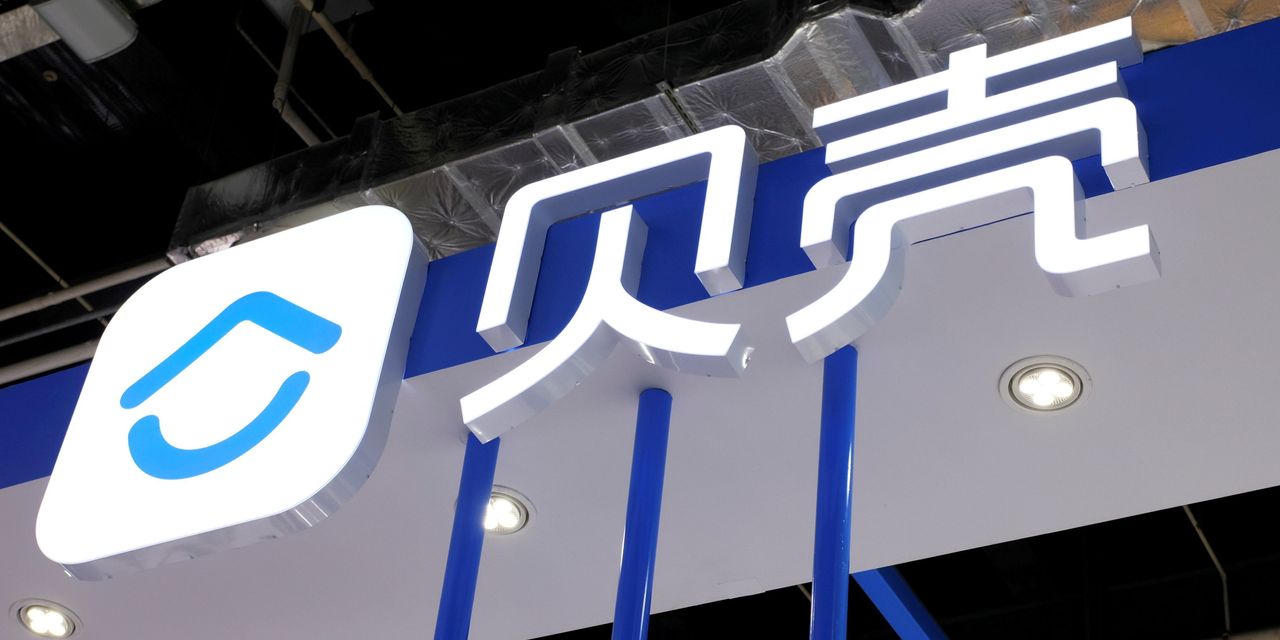
SINGAPORE—Chinese real-estate brokerage KE Holdings Inc. said on Friday that it would conduct an internal review into allegations of fraud made by a prominent U.S. short seller, and disputed the claims in the investment firm’s report.
A day earlier, Muddy Waters Capital LLC issued a 77-page report on New York-listed KE Holdings, which operates a popular online platform in China used by many real-estate agents, homeowners, buyers and individuals looking for apartment rentals. The firm collects fees for facilitating transactions involving new and secondhand homes, and has a unit that offers real-estate financing, home renovation, and property management services. KE Holdings is known as Beike—the Chinese word for “seashell.”
Muddy Waters said it had taken a short position in the company, and drew similarities between Beike and Luckin Coffee Inc., the formerly Nasdaq-listed Chinese coffee chain that inflated its reported revenues for months before disclosing a large accounting fraud.
The firm run by American short seller Carson Block said it found discrepancies in Beike’s reported transaction volumes, number of stores and agents after conducting due diligence that included “field interviews and site visits,” and collecting data from the broker’s platform. It accused the company of significantly inflating its commission revenues and business volumes. Beike’s shares ended 2% lower on Thursday after Muddy Waters released the report.
Beike said Friday that Muddy Waters’ report is “without merit and contains numerous errors of facts, unsubstantiated statements and misleading speculations and interpretations.” It added that the report “shows a lack of basic understanding of the housing transactions industry in China.” It went on to criticize Muddy Waters’ data collection methods, research and analysis about its transaction volumes and attempts to verify its store and agent numbers, and said a lot of it was based on incomplete data.
The company also said an independent audit committee has been authorized by its board to conduct “an internal review of the key allegations contained in the Muddy Waters report, with assistance and advice from independent third-party advisers to be engaged by the audit committee,” and it will provide updates when appropriate.
Beike listed on the New York Stock Exchange in August 2020 after raising more than $2 billion in its initial public offering. Its market capitalization soared to more than $80 billion within months of its trading debut, but has since fallen to about $22 billion.
The company’s backers include SoftBank Group Corp.’s Vision Fund, Chinese Internet giant Tencent Holdings Ltd. , and private-equity firm Hillhouse Capital Group. Beike last year reported net profit equivalent to $113 million following years of losses, and said net revenue jumped 53% to the equivalent of $11 billion.
In May this year, Beike said its co-founder, chairman and controlling shareholder Zuo Hui died after from an illness that it didn’t detail. The company’s Chief Executive Peng Yongdong subsequently took on the chairman role.
The company’s transaction volumes—and share price—have fallen this year amid a broader property sales slump that was triggered in part by financial problems at China Evergrande Group and other major developers. In the first nine months this year, Beike said its revenue declined 12% from the same period in 2020. The company said it had nearly 50,000 active stores, up 20% from a year ago, and 468,014 active agents as of Sept. 30.
Copyright ©2021 Dow Jones & Company, Inc. All Rights Reserved. 87990cbe856818d5eddac44c7b1cdeb8







